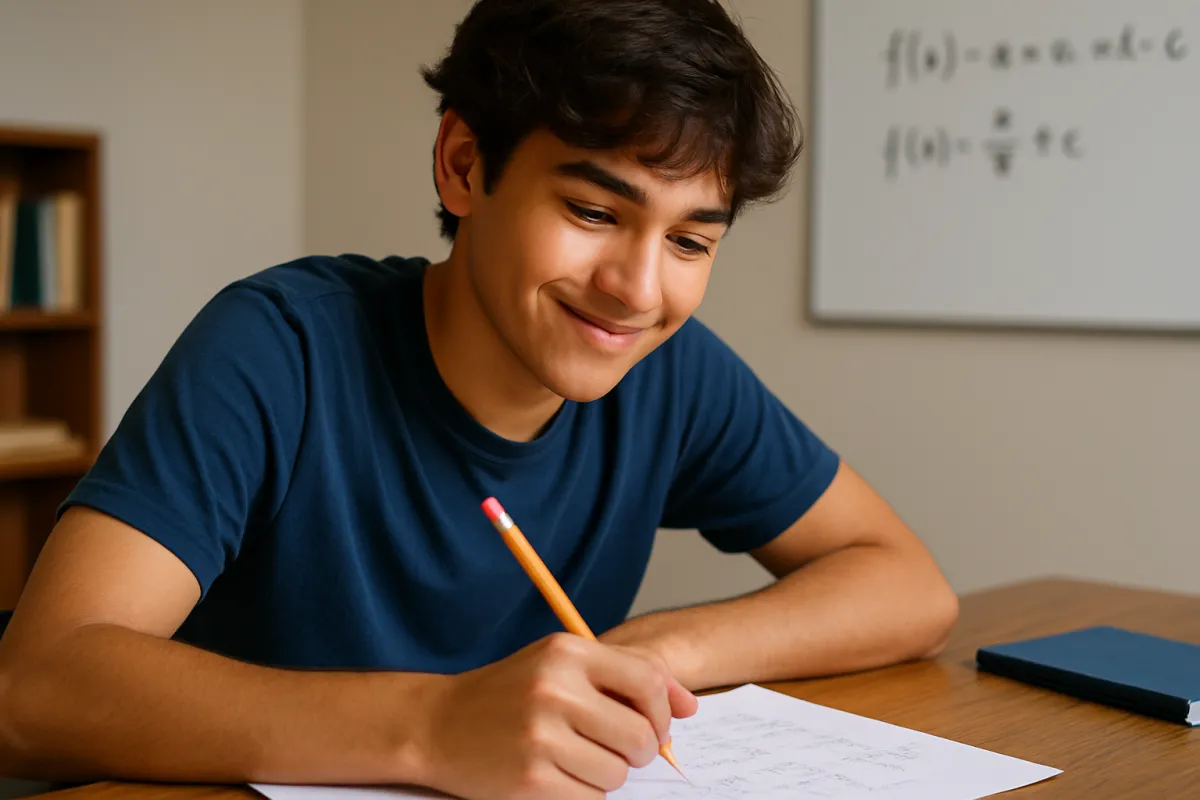
How to Build Student Confidence in Math and Physics
Let’s be honest...
It’s not always just about the grades.
Sometimes, what’s really missing is confidence.
Because when a teen thinks:
“I’m just bad at this…”
“I’ll probably mess it up…”
“I never get these problems right…”
They’re not going to try.
They’re going to shut down — even before the first step.
And in math and physics, confidence makes all the difference.
So let’s talk about how to rebuild it.
1. Confidence Comes From Clarity
A lot of students lose confidence because they don’t understand why the math or physics works — they’re just memorizing steps.
And when they don’t understand, they:
Second-guess every answer
Get stuck halfway through
Freeze on tests
But once they actually understand the concept?
They start making decisions on their own — and that’s where confidence begins.
2. Start With Wins They Can Feel
Confidence builds through small, consistent wins.
That means:
Going back a level to review (and master) older skills
Picking practice problems that are challenging but doable
Making sure every success is something they figured out — not something just handed to them
Confidence doesn’t come from “being told they’re smart.”
It comes from solving a problem and thinking,
“I did that.”
3. Focus on Process, Not Perfection
When students feel like they need to get the answer right every time, they’re afraid to even try.
Instead of just checking for correctness, ask:
“How did you decide to try that step?”
“Can you walk me through your thinking?”
“What part felt confusing — and what part felt solid?”
When students realize their process is improving — not just their answers — they begin to trust themselves more.
And trust leads to confidence.
4. Let Them Struggle (Safely)
This part surprises people:
Real confidence doesn’t come from always being rescued.
A good tutor won’t jump in the second a student hesitates.
They’ll let them wrestle with the problem for a bit — then step in with a question, not just the solution.
Why? Because figuring it out on their own (even if it’s messy) builds way more belief than being shown the answer ever will.
A Note on How I Work
When I tutor math and physics, my goal isn’t just to help students pass the next test.
It’s to help them start trusting their own brain again.
That means:
Letting them explain their thinking
Celebrating partial wins and smart risks
And adjusting sessions until they’re not just doing the work — they’re owning it
I’ve seen the difference that confidence makes.
And I’ve seen what happens when a student finally says,
“I think I can figure this out.”
If your teen is struggling not just with math or physics — but with believing they can improve — there’s a way forward.
To talk about how one-on-one support can rebuild your teen’s confidence,
contact me and tell me what they’ve been dealing with.
We’ll figure it out — together.
